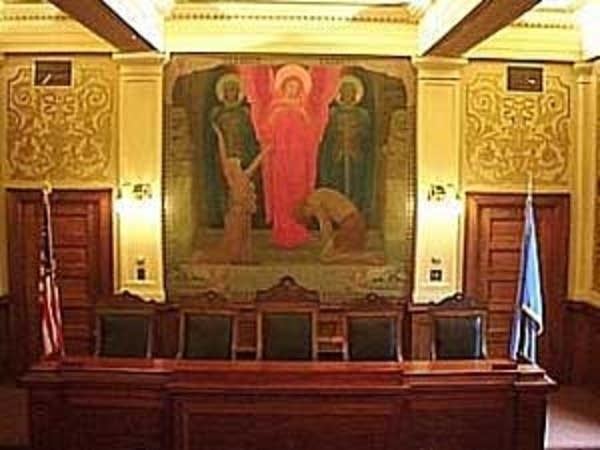Open government laws at issue in South Dakota

Pheasant hunting is a multi-million dollar business in South Dakota. The annual governor's hunt is by invitation only and becomes rife with politics and business deals.
In the past, the invitation list was no secret. When the Sioux Falls Argus Leader asked about three years ago to see who was invited, Executive Editor Randall Beck says it seemed like a simple question.
"We were told the public, in other words the Argus Leader, would not have access to those names," Beck says.
That's because Gov. Mike Rounds said it would be improper. In fact the governor refuses to talk about this issue. He told the newspaper at the time of its request the hunt is a private economic development event to lure businesses to South Dakota. Rounds doesn't want other states to know who was there.
Create a More Connected Minnesota
MPR News is your trusted resource for the news you need. With your support, MPR News brings accessible, courageous journalism and authentic conversation to everyone - free of paywalls and barriers. Your gift makes a difference.
"The people of the state ought to know what its government is doing at every level."
Editor Randall Beck says he tried negotiating with the governor over the list of people invited to the annual pheasant hunt. But the governor didn't budge. The newspaper sued to get access. A lower court ruled the state was not required to release the names. The Argus Leader appealed the ruling to the South Dakota Supreme Court. Randall Beck says the case is about the constitutional right of open government.
"I don't think anyone would argue getting the names of the politicians and judges and business people of this state who are in fact invited to the hunt is really just a secondary issue," he says. "We're trying to press home the point the people of the state ought to know what its government is doing at every level."
South Dakota has weak laws dealing with open government. The main statute was written in 1935. It says the only records open to the public are the records that must be preserved according to state law. Here's the catch, the law requires very few records be kept.
General manager of the South Dakota Newspaper Association, David Bordewyk, says there are records like tax deeds that must be kept by a county treasurer. Those records are open to the public. But Bordewyk says if anyone is interested in looking at a police log, the document that shows every call an officer responded to, that gets a little sticky.
"There is no clear cut statute that requires law enforcement to keep that log. So you have a hodge podge (system.) Some may have the information available. Some flat out won't give you that information because the law doesn't require them to," he says. "What we need in South Dakota is a law that says... all records are presumed open, all information is presumed open and accessable by the public unless there are exceptions it closes that information."
There are good reasons to close information; no one disputes that. For example, no one should be allowed look up another person's social security number.
Executive director of the National Freedom of Information Coalition at the University of Missouri, Charles Davis, describes South Dakota's open government laws as being at the bottom of the muddled middle of all the states. He says South Dakota isn't alone in needing total overhaul of its laws on this issue.
Davis says this is an issue that should matter to everyone because we all need information from our government at some point.
"You may look out in your back yard and see a survey crew and you'll go, 'Huh, I wonder what in the heck those people are doing?' Or you'll get your property tax bill and it has skyrocketed and you'll get angry and try and figure out what happened. You're going to have a need for public information," Davis says.
The easiest way to obtain public information is your computer but none of South Dakota's open records laws even consider electronic data.
The Sioux Falls Argus Leader case will be decided by a panel of five circuit judges. All of South Dakota's Supreme Court justices recused themselves from hearing this case.
